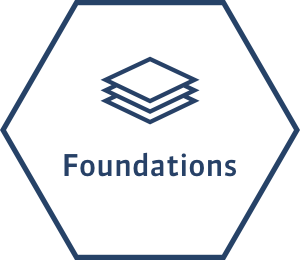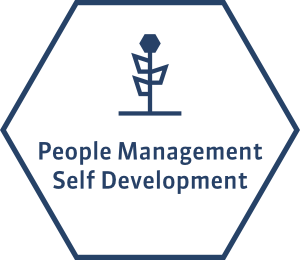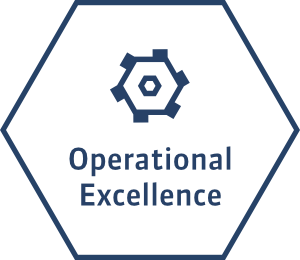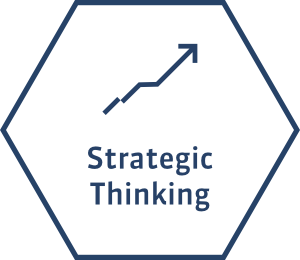Interview with Barbara Stepnowska, PhD

Who are the MBA studies for?
The IMBA programme is connected with business education and continuous improvement of people in the field of leadership, change management, intercultural cooperation and innovation.
These studies are directed to people with professional experience (our students have on average 13-15 years of work experience behind them), seeking to strengthen their competences not only in management, but also the foundations of economics, finance and accounting. MBA studies also offer the opportunity to exchange knowledge between students from different countries. It is an important element, because cultural and national diversity influences the attractiveness of the classes and it is also a crucial factor of innovative economy.
What can you learn during MBA studies?
An extremely important task of an MBA programme is to focus the education on the innovativeness of the organisation and work culture. Changing the organizational culture is a stimulator of creativity, which helps to build the intellectual capital of a company. Therefore, innovativeness and competitiveness of the economy. In order to meet these demands, it is extremely important that participants in a competitive market possess the skills associated with entrepreneurship, and often, being far from their comfort zone, are able to use critical thinking in making business decisions. And this is what we teach during the MBA studies.
Does the current economic situation affect MBA studies? Are MBA studies adjusted to current market events?
The global changes that take place in the economic and political environment are the main challenge. Good MBA programmes must be adapted to reflect these changes, because this is what students expect from us. For example, the 2008 economic crisis forced dynamic changes not only in the economies of many countries, but also in syllabuses of MBA programmes. The dynamics of changes in the economy influences the dynamics of changes in a programme. And that is how it has been during the last 10 years of our programme.
Our goal is to combine science with business in the best possible way, through, as I mentioned earlier, supporting and focusing the innovation on organisation of work. At the same time, we must not forget that innovation is not only about the development of technology. There is no economic innovation without innovative education. We invite experts from Poland and abroad to create MBA studies, update the programme, and we work on its continuous development, so it reflects what is currently happening on the market and indicates the trends. It is also crucial to create an atmosphere that stimulates creativity, for example, by establishing links between science and business, the world of culture and the arts. There is also a lot of talk about the cooperation between universities and business, but its mechanisms have not yet been created. Therefore, part of the MBA programme are numerous meetings with people from the world of business, which are a platform for the exchange of knowledge and the opportunity to get to know each other. This also has an impact on the changes in the curriculum of the programme.
Whether and how has the MBA programme of the Gdańsk University of Technology changed over the 10 years of its operation?
Exactly 10 years ago, the Gdańsk University of Technology set itself a goal to create an MBA programme of high quality confirmed by international accreditation. As a result, a modern programme based on the four pillars of knowledge, i.e. strategic leadership, operational excellence, personal development and the foundations of economic knowledge, has been built.
Since then, the MBA programme of the Gdańsk University of Technology has been continuously developed and updated in order to provide our students with the latest knowledge and indicate current trends in management. Its framework includes such issues as: creativity, innovation and change management and creation of new business models. The goal is to provide our students with the latest managerial and economic knowledge. Today’s managers also need proficiency in the field of the so-called soft skills, such as the art of negotiation, communication and adaptability. However, in recent years, the skill that is the most needed for the MBA students and at the same time proves to be the key to successful leadership is the maturity of leadership and leading the change in organizations. Since the launch of the MBA studies at the PG in 2008, the programme has definitely evolved and developed. This can be seen not only in the number of teaching hours, which has been increased from 430 to 530, but also in the content of the curriculum.
Do you think that MBA studies will be needed in 2028? After more than 25 years of existence on the educational market, are MBA studies still needed in Poland?
Rapid technological progress, robotics and automation are already contributing to changes in business models and ways of managing people. We are beginning to understand that digital transformation will force many people to re-qualify during their professional career. Long-life learning and mid-career training, throughout the course of one’s career, will certainly become an important stage of improving the competences of those times. It will be necessary to change the educational models. The Global Competitiveness Report, published by the World Economic Forum in October this year, indicates what competencies will be needed in the near future. It is the role of MBA programmes, to meet the needs in shaping competencies that allow for cooperation with technology, but also those relating to social, behavioural or emotional competences, regardless of the sectors in which we work.
Is it better to participate in MBA studies in Poland that are conducted in Polish or English?
Today, one of the necessary skills on the labour market is the knowledge of English. Our programme is conducted in English. This is to enable the natural flow of knowledge between participants from different countries working in multicultural teams. It is a fundamental value of the programme.
How important is the cooperation with a foreign university (universities) in organising MBA studies?
The MBA diploma of the Gdańsk University of Technology, reinforced by the AMBA accreditation for the next 5 years, allowed for the creation of its own brand on the international market, indicating the guarantee of high quality of these studies on a par with foreign universities. Accreditation opens many doors for the university: to international rankings, opportunities to establish cooperation with other accredited academic centres. Maybe in the future Polish universities will validate programmes of other aspiring universities? For our students it is important to have the possibility of joining an international network, which is a platform for exchanging knowledge, the opportunity to take advantage of job offers or study trips. What, I hope, our students and graduates will be happy to use.
Business education needs to be stimulated by a radical import of knowledge from abroad. In the MBA programme of the Gdańsk University of Technology, from the very beginning, a well-qualified teaching staff, familiar with the reality of the international business environment, was put at the forefront. The lecturers, who are business practitioners and academic teachers, come from different countries, organizations and backgrounds. Our programme is based on the criteria set by the AMBA, which is an international accreditation institution. Today, the quality of our studies is confirmed by such certificate, which, so far, has been granted to only six MBA programmes offered by Polish universities (around 2 percent worldwide).
AMBA accreditation is also an opportunity for our department to organize joint international events, fairs and conferences that will allow the university further exposure, in order to show its capabilities. On the other hand, our presence at events organized by AMBA helps us to expose our university abroad.
And what after MBA studies? Are MBA graduates well-prepared for the changing conditions on the labour market?
Responsibility for the learning outcomes of the MBA programme is on the side of the three parties involved: students, lecturers and organisers. Therefore, it is our shared responsibility. The labour market is the best place where we can verify whether we met the expectations and whether the joint effort has prepared our graduates for the tasks of the changing economy. Many of our graduates do well on the labour market, creating their own companies or holding high managerial positions.
What advice would you give to all those preparing to start the MBA studies?
Our motto: MBA is not only the education, but the values we bring together, can be a starting point for the consideration of taking up these studies. That is why it is worth answering these questions: why these studies are to serve me and what I can contribute to the programme in order to build a common value. For many people it is difficult to define their expectations of the programme and of themselves. At this point, in my opinion, we should be critical of our expectations and development needs, because MBA studies are not only a serious financial investment, but also an investment of time – a resource that no one will return to us. Therefore, if we achieve our goals responsibly, it will certainly be a good decision.
The interview is also available in Polish on the author’s website mba.portal.pl









